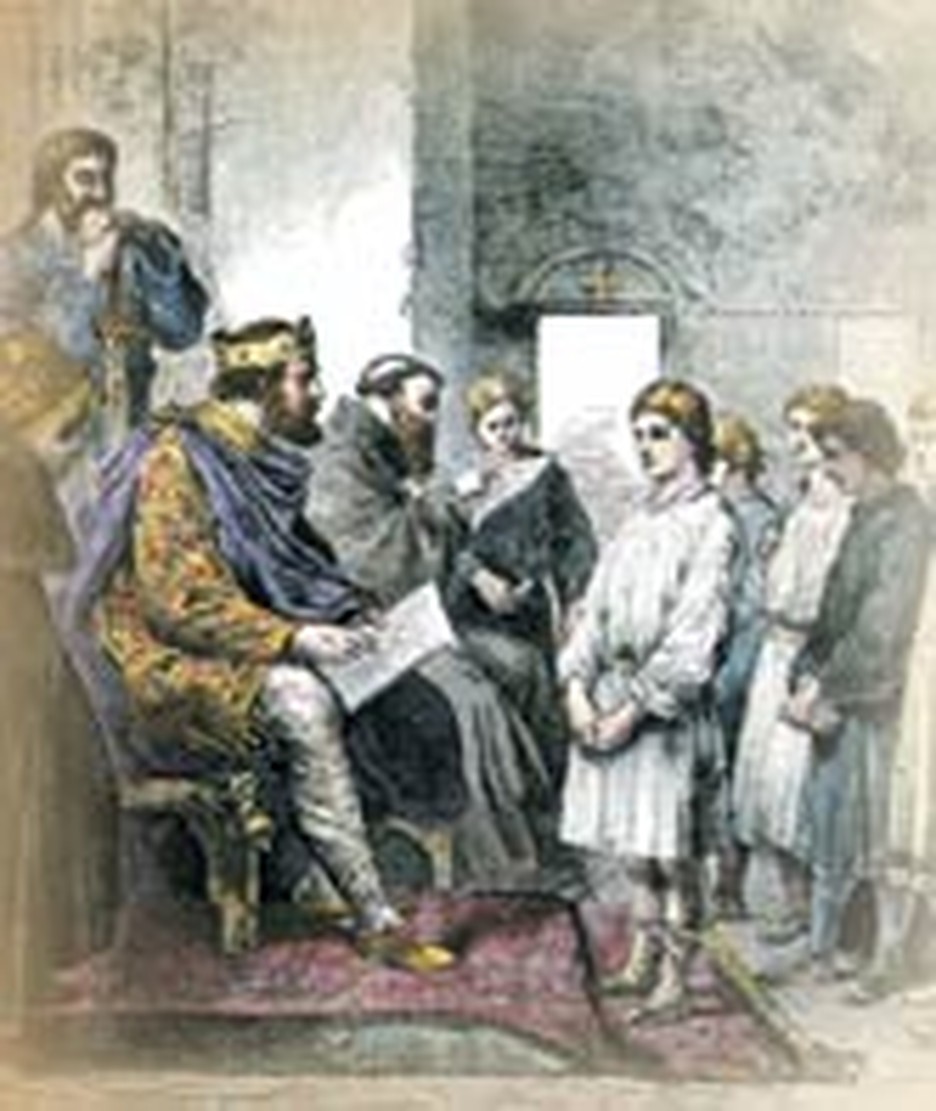
On the wall of his study Albert Einstein kept a portrait of the man he looked to as providing the foundation for his own scientific discoveries -- Michael Faraday. Faraday was one of the greatest experimenters in the history of science. He was recognized as the greatest scientist of his own day.
For over half a century Faraday worked and lived at the Royal Institute in London, where he was a leading chemist as well as the developer of field theory in modern physics. He was the discoverer of benzene as well as the discoverer of electromagnetic induction and the laws of electrochemistry. He was the first to convert mechanical energy into electric energy, the crucial step towards development of the electric motor and generator. In his study of electricity Faraday developed some of the vocabulary still used in physics today, using terms such as electrode, cathode, and electrolysis.
Throughout his successful scientific career, Faraday maintained a simple yet deep Christian faith. He belonged to a small group of Christians known as the Sandemanians who were strong believers in the literal interpretation of Scriptures. The Sandemanian church was patterned as much as possible after the New Testament church. Faraday lived by the Bible and the demanding discipline of the Sandemanians throughout his life. His commitment was strengthened by his Christian involvement in this little community of believers. He served as a deacon and elder in the church as well as visited those in need, helping them physically and spiritually. Everyone recognized Faraday as a man of unusual character; his simplicity, modesty, and humility were deeply rooted in his Christian faith.
Faraday's favorite book in the Bible was Job. Though in his scientific studies Faraday was consciously seeking to understand the beauty, symmetry, and organization of God's creation, he also realized with Job that a man cannot find God by his own reasoning. The Scriptures alone clearly reveal Him. Faraday wrote that a Christian finds his guide in the word of God, and commits the keeping of his soul into the hands of God. He looks for no assurance beyond what the Word can give him, and if his mind is troubled by the cares and fears which assail him, he can go nowhere but in prayer to the throne of grace and to Scripture.
Faraday's peace and security was not in his worldly fame but in the Lord Jesus Christ. In 1861 Faraday wrote to a scientist friend: Since peace is alone in the gift of God; and as it is He who gives it, why should we be afraid? His unspeakable gift in His beloved Son is the ground of no doubtful hope.
DISTANT DATELINE: Celebrating Our Great King Alfred
British Isles 896 AD It is the 25th anniversary of King Alfred's reign on the Wessex throne in England and the entire kingdom rejoices that God gave our land this good and wise monarch. When the Anglo-Saxon Alfred ascended the throne at the age of 23, Viking raids still threatened British lands. The year after his accession, however, the young king wisely purchased a truce from the raiding Danes, giving him time to put his kingdom in order. Instituting a military reorganization of the realm and establishing a navy which could challenge the Vikings, within six years Alfred was able to defeat the Vikings at the battle of Edington. As a result, the Viking Guthrum accepted Christianity and abandoned Wessex.
With his own kingdom secure, King Alfred began the many reforms and programs which cause us to celebrate so joyously this Silver Jubilee. Alfred has always maintained that Christianity alone could rightly mold his nation. When he reviewed and codified the laws for his kingdom, he recognized that God's law should be the basis of his kingdom's law, and he made the Ten Commandments the preface to all laws. Alfred improved government by choosing educated advisors who know the heritage of Christianity. By establishing a school at court, he assures the continued Christian education of our governmental officials.
Though an excellent warrior, administrator, and leader, Alfred's love of learning sets him apart from other kings. He has even translated several important Latin works into the Saxon tongue, including Gregory's Pastoral Care and Orosius' History of the World. He has also encouraged the translation of the Holy Scriptures into Saxon and is working on translating the Psalms himself.
Thus the people celebrated. Rarely has a Christian ruler done so much to educate leaders in the faith and lead such an exemplary life himself.







